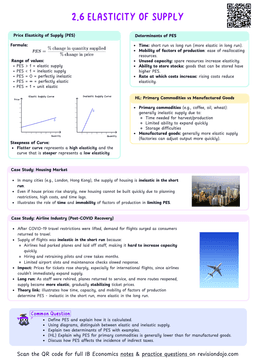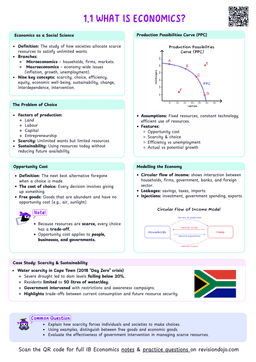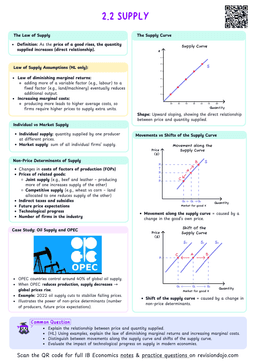Gross National Income (GNI)
The total income earned by an economy's residents over a specific time period, equal to the market value of all final goods and services produced by the factors of production supplied by the economy's residents, regardless of the location of the factors of production.
In turn, the GNI:
- Measures the total income an economy's residents receive in return for providing the factors of production that produce the national output.
- Does not take into account the location of the factors of production.
How does GNI differ from GDP?
The calculations of the GDP and GNI of the same open economy, during the same period of time provide different values for the national output. This is because:
- GDP is the market value of all final goods and services produced in an economy over a period of time (usually a year), regardless of who owns the factors of production.
- GNI is the total income earned by an economy's residents, equal to the market value of all final goods and services produced by the factors of production supplied by the economy's residents, regardless of the location of the factors of production.
Understanding the differences noted above, the GNI can also be defined as:
GNI = GDP + Net Factor Income ( Income from the economy's residents abroad - Income sent abroad (produced inside the economy by foreigners) )
This is because GNI reflects the total income belonging to a country's residents, regardless of where it is generated.
ExampleCalculating GNI from data
Let’s calculate the GNI of Econland, by including its income from abroad and adjusting for payments made to foreign factors. Here is the data we have from Econland's economy:
To calculate the GNI, we first calculate the GDP using the expenditure approach:
| Expenditure Component | Subcategory | Amount (in billions) |
|---|---|---|
| Consumer Spending (C) | Durable goods | 500 |
| Non-durable goods | 400 | |
| Services | 300 | |
| Investment (I) | Residential construction | 200 |
| Business capital expenditures | 150 | |
| Improvements in inventories | 50 | |
| Government Spending (G) | Infrastructure | 150 |
| Defense spending | 50 | |
| Education and healthcare | 100 | |
| Exports (X) | Manufactured goods | 100 |
| Agricultural products | 50 | |
| Services | 50 | |
| Imports (M) | Consumer goods | 80 |
| Raw materials | 50 | |
| Services | 20 | |
| Net Factor Income (NFI) | Income earned by residents abroad | 50 |
| Payments to foreign factors | 40 |
GDP = C + I + G + ( X − M )
We substitute the values from the table:
GDP = (500 + 400 + 300) + (200 + 150 + 50) + (150 + 50 + 100) + [(100 + 50 + 50) − (80 + 50 + 20)]
Then, we operate:
GDP = 1,200 + 400 + 300 + 50 = 1,950 billions of dollars.
Now we can finally calculate the GNI by remembering that:
GNI = GDP + Net Factor Income (Income earned by residents abroad - Payments to foreign factors)
Hence:
Net Factor Income = 50 - 40 = 10
To conclude, we add the Net Factor Income to the GDP value:
GNI = 1,950 + 10 = 1,960 billion dollars
NoteNot always it occurs that the GNI is greater than the GDP of an economy as the GNI can also be smaller than the GDP. It depends if the Net Factor Income is positive or negative.


